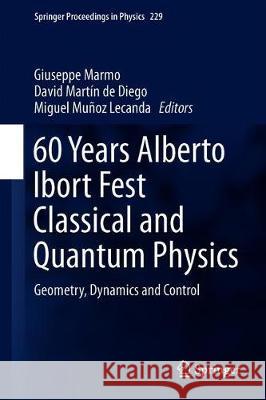Classical and Quantum Physics: 60 Years Alberto Ibort Fest Geometry, Dynamics, and Control » książka
topmenu
Classical and Quantum Physics: 60 Years Alberto Ibort Fest Geometry, Dynamics, and Control
ISBN-13: 9783030247478 / Angielski / Twarda / 2019 / 374 str.
Kategorie BISAC:
Wydawca:
Springer
Seria wydawnicza:
Język:
Angielski
ISBN-13:
9783030247478
Rok wydania:
2019
Wydanie:
2019
Numer serii:
000383562
Ilość stron:
374
Oprawa:
Twarda
Wolumenów:
01











